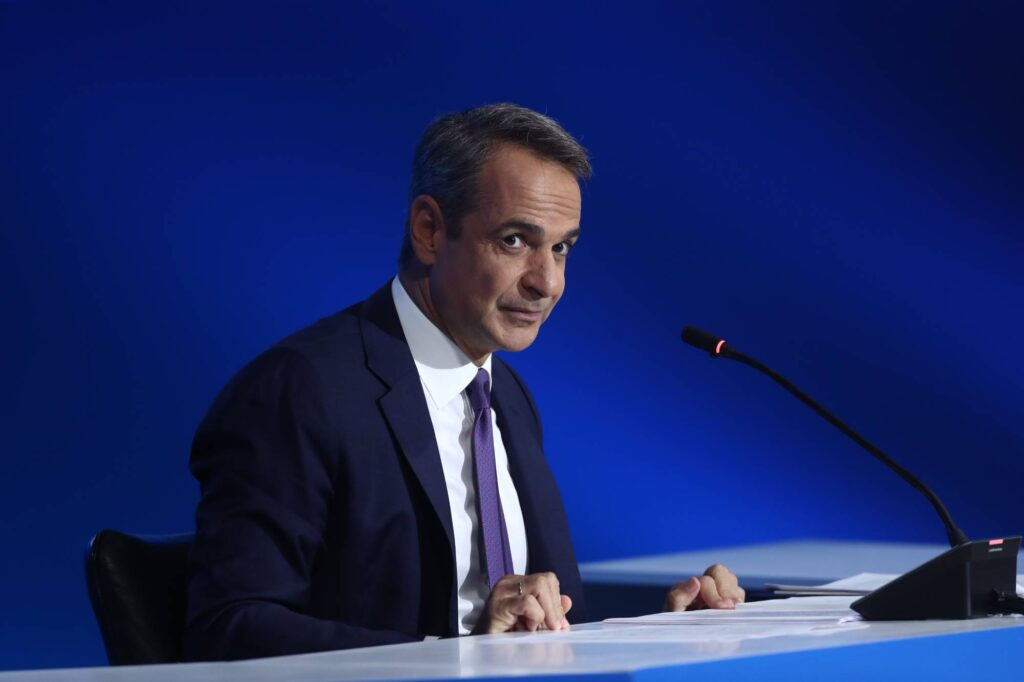The die is cast for new relief measures: The final package for the Thessaloniki International Fair was “locked in” yesterday during a closed meeting at the Maximos Mansion, following the Government Economic Policy Council session that approved the new National Extroversion Strategy. Today, Kyriakos Mitsotakis is expected to put the finishing touches on the speech he will deliver Saturday evening at Vellidio, with everything now nearly ready for the Prime Minister’s two-day presence in Thessaloniki. The government is banking heavily on this visit to launch the so-called autumn political counteroffensive and achieve significant polling recovery.
The central message will be that for the first time, a government has effectively tackled tax evasion and is returning money to society that the state previously couldn’t collect – and returning it fairly. The total “package” to be presented by the Prime Minister will amount to 1.7 billion euros, sourced from budget execution surplus. It will primarily involve major tax reform, as Pavlos Marinakis emphasized yesterday, focusing on reducing tax rates for the middle class.
“Tax cuts will be permanent measures, continuing the 72 direct and indirect taxes we have already reduced. The keyword is families with children,” the government spokesperson stated, indicating that demographics and addressing the demographic crisis will be at the core of Mitsotakis’ announcements. After all, in 2024 the number of Greek citizen deaths (125,423) was more than double the births (62,624), a statistic that rang alarm bells at the Maximos Mansion since last spring when it was announced.
“Kyriakos Mitsotakis’ government is ready to present new relief measures for the middle class,” was the headline chosen by international news agency Bloomberg for its relevant report. Bloomberg notes that the Greek Prime Minister, leveraging significantly higher revenues, will present a series of benefits in a speech this week that could lay the groundwork for becoming Greece’s longest-serving leader in more than two decades. Among the measures the government is considering, according to Bloomberg, are tax cuts for the middle class, family support, and increased spending for pensioners and security force members, while revealing that if Greece’s budget continues to outperform, the government may also consider additional relief measures in April.
Meanwhile, in a LinkedIn post (“4 myths of the ‘compassionate’ opposition”), Kostis Hatzidakis clarifies why the government rejects both granting a 13th salary and reducing VAT, opting instead for a different logic of reducing direct taxes specifically. The Deputy Prime Minister notes that the cost for a 13th salary would be 1.4 billion euros and wonders “how logical would it really be to allocate our entire available amount to satisfy only one social group?”. Regarding VAT reduction, he mentions that this measure didn’t work in either Spain or Portugal. “As proven, VAT reduction didn’t reach consumers because various opportunists pocketed it.”




